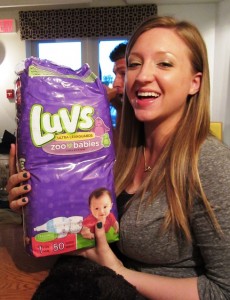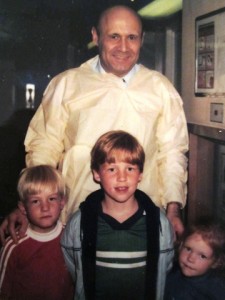Technically, today is my first Mother’s Day. I haven’t met my baby yet, but I think motherhood began for me about 3 months ago when I learned I was pregnant. I found out on February 14th, and it was quite the unexpected Valentine. My fears and worries eased as I gradually shared the news with family and friends and was surrounded by their love.
Tonight my family went out to dinner and enjoyed a Mother’s Day celebration together. Among other things, my mom gave me a pack of diapers, and I realized that I’ve never changed a diaper before. It’s hard not to feel a little defensive when people tell me I have no idea what I’m in for or how difficult this will be for me. My life has already changed quite a bit. I think it’s important for me to look for the good, happy, and beautiful things all around me as I move forward.
My mom has been a tremendous example to me of always focusing on the positive things. Her upbeat attitude is contagious, especially when it comes to my baby. I can’t forget how delighted I felt when I first saw my baby dancing around inside of me or heard that precious heartbeat for the first time. It’s amazing to think about the brand new life I’ll be a part of and the intense connection and joy I’ve experienced.
One year from now on my second Mother’s Day, I’ll probably have experienced some of what others have “warned” me about. But just the thought of being able to hold and kiss my baby has me eagerly awaiting that day and the whole year ahead!




